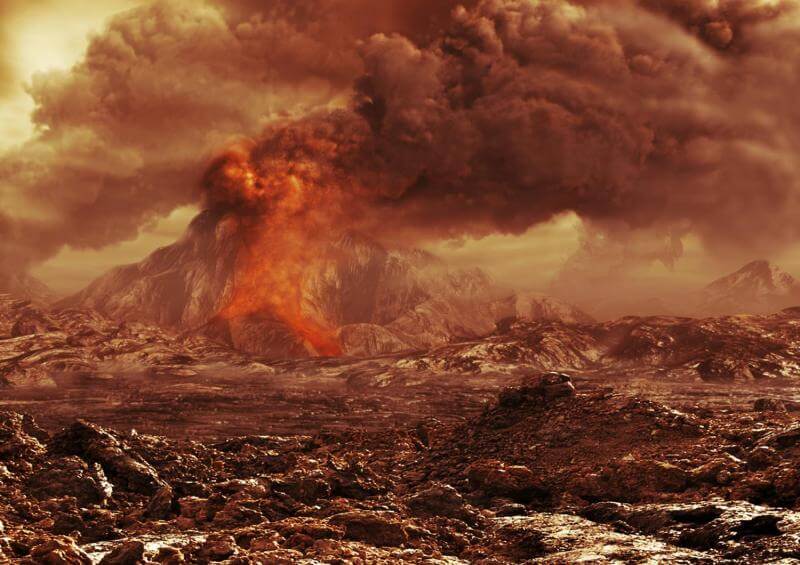Earth is not the only planet where acids are found. Scientists have proved that some planets do contain acids in greater abundance than Earth. One of these planets is Venus. While Earth’s atmosphere is composed of Nitrogen (79%), oxygen (20%), and other gases (1%), Venus’ atmosphere is made up of thick clouds of nitrogen, carbon dioxide, and concentrated sulphuric acid (reaching up to 70-99 wt% in concentration).

The sulphuric acid is believed to have originated from volcanic eruptions. I know you are probably asking: but earth has also experienced a fair share of volcanic eruptions?
Well, the main difference is the fact that Sulphur from early volcanic eruptions on Earth was incorporated into solid Sulphur compounds. On Venus, however, such Sulphur solids don’t form as they do on Earth because the surface temperature is too hot for them to form.
(The surface temperature on Venus is about 9000 Fahrenheit (4800C Celsius), which is above the melting point of Sulphur (2350F or 1130C)).
As such, instead of the Sulphur being incorporated into solids (or rocks) like on Earth, it continues to float on Venus’ atmosphere in the form of Sulphur dioxide (SO2).
It is this SO2 that gets converted into sulphuric acid rain on Venus via the following reactions:
Sulphur first reacts with oxygen to form Sulphur trioxide:
2SO2+ O2 → 2SO3
(The oxygen comes from water that is also present in Venus’ atmosphere. When the Sun’s UV rays hit the water molecules, it dissociates into hydrogen and oxygen)
The Sulphur trioxide formed then reacts with water vapor to form sulphuric acid
SO3 + H2O → H2SO3
Venus clouds, therefore, contain relatively large droplets of sulphuric acid, which sometimes rain down on the surface of the planet as acid rain or at least try to rain because in most cases the temperature in Venus’ atmosphere is so high that the droplets evaporate before they actually reach the surface.
After evaporation, the sulphuric acid decomposes into water and Sulphur dioxide, which then rises to feed the Venus clouds and the circle continues. This is why Venus clouds is composed of higher concentration of aqueous solutions of sulphuric acid. And contrary to what many people believe, acid rain is not a major cause of surface erosion like it is on Earth (because acid rain seldom reaches the surface of Venus).
There is also Sulphur dioxide in the earth’s atmosphere (from the burning of fossil fuels like gasoline or coal). Once in the atmosphere, the above chemical reactions also occur, resulting in the formation of sulphuric acid. Unlike, Venus, sulphuric acid in the earth’s atmosphere doesn’t evaporate but falls to the ground as acid rain, which we know is a potent environmental pollutant that can destroy buildings and harm plant and animal life.



